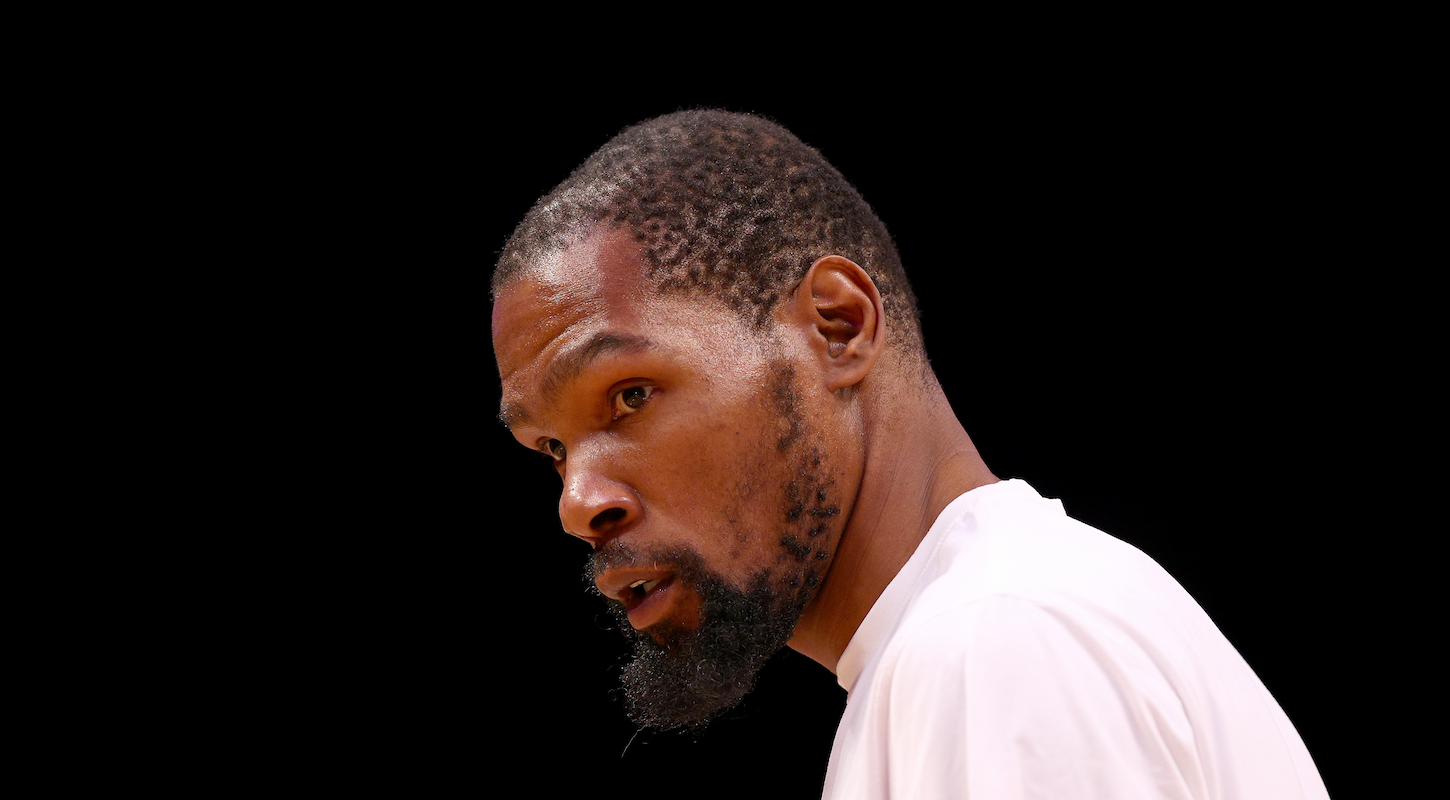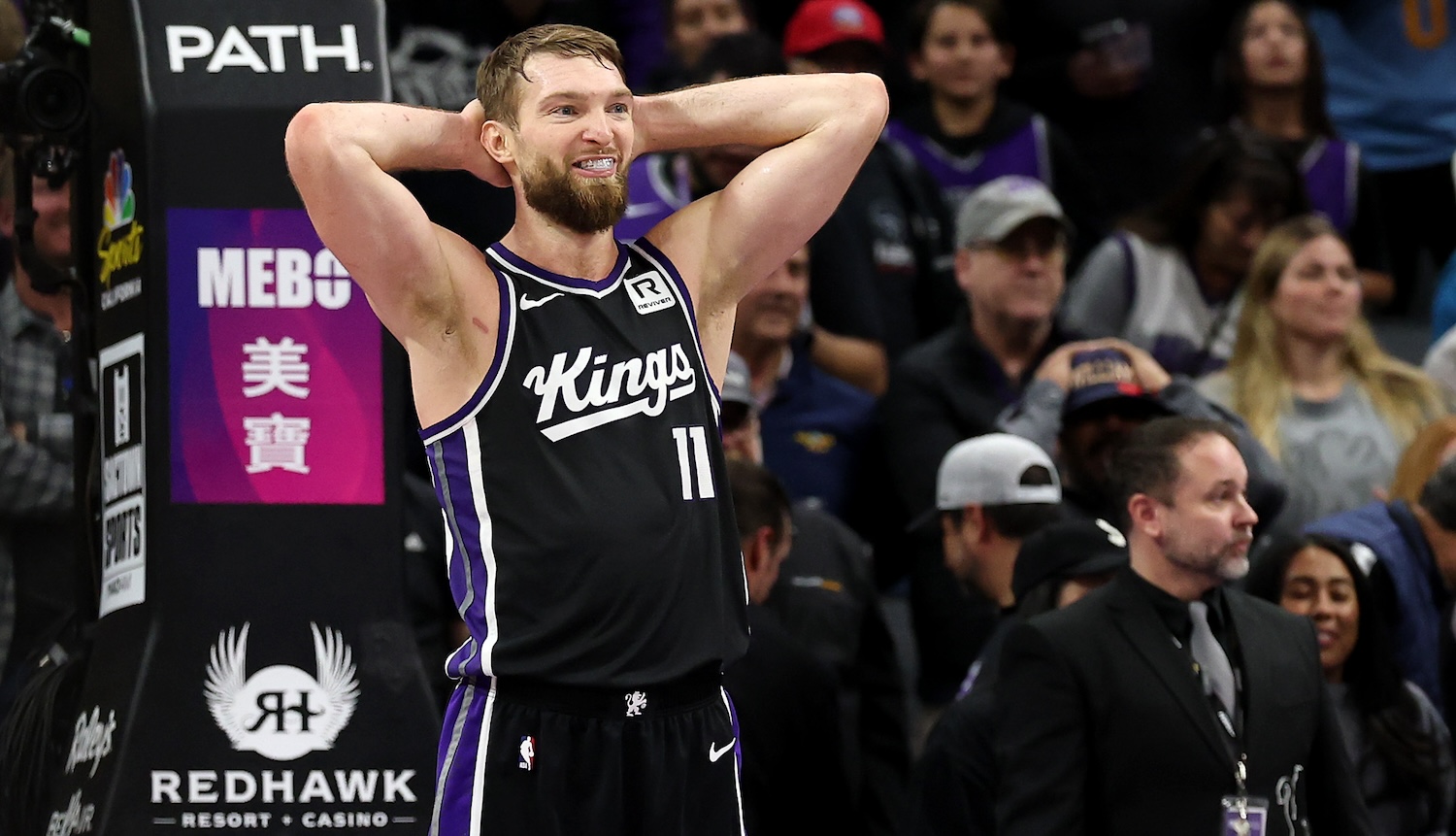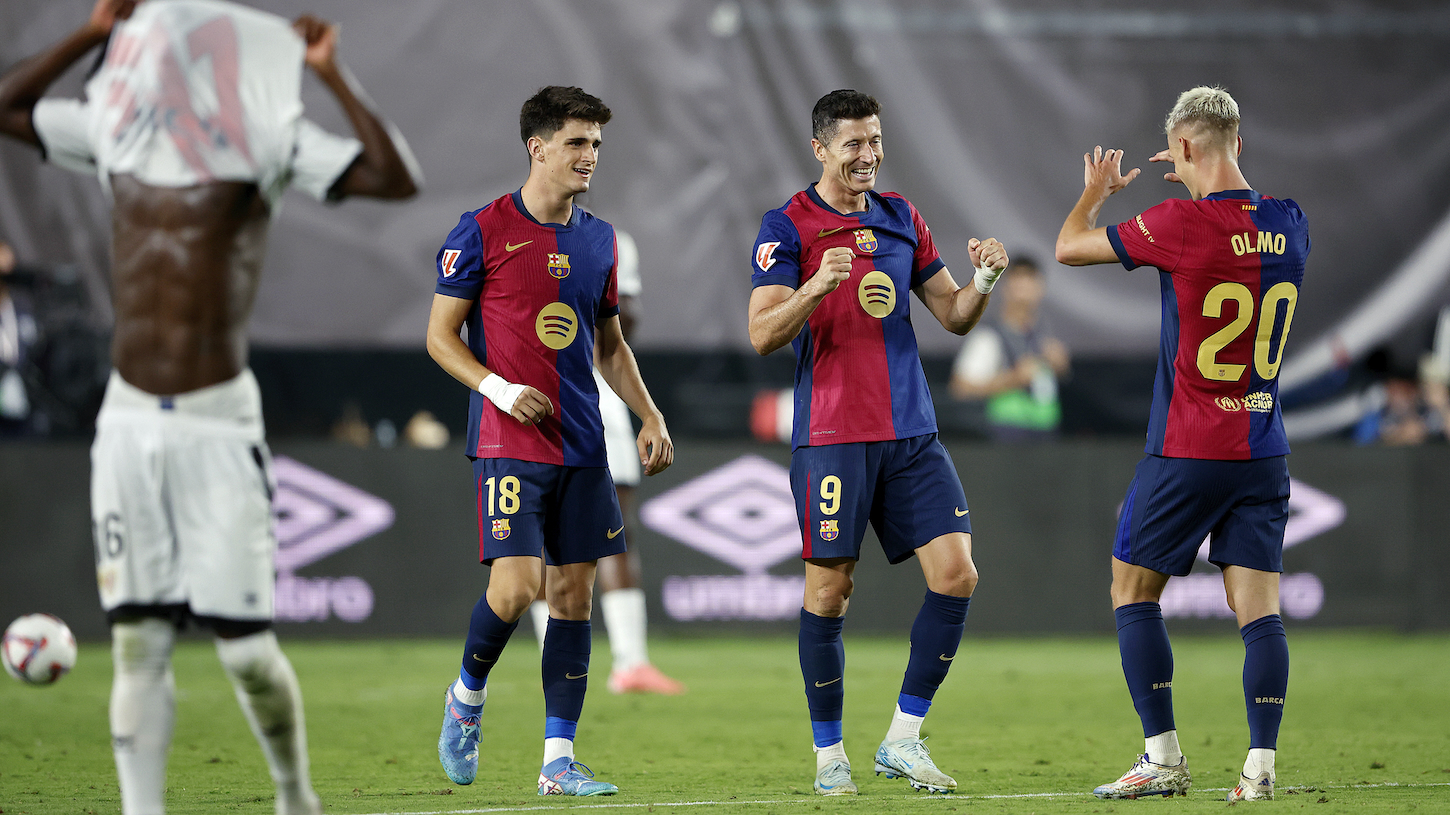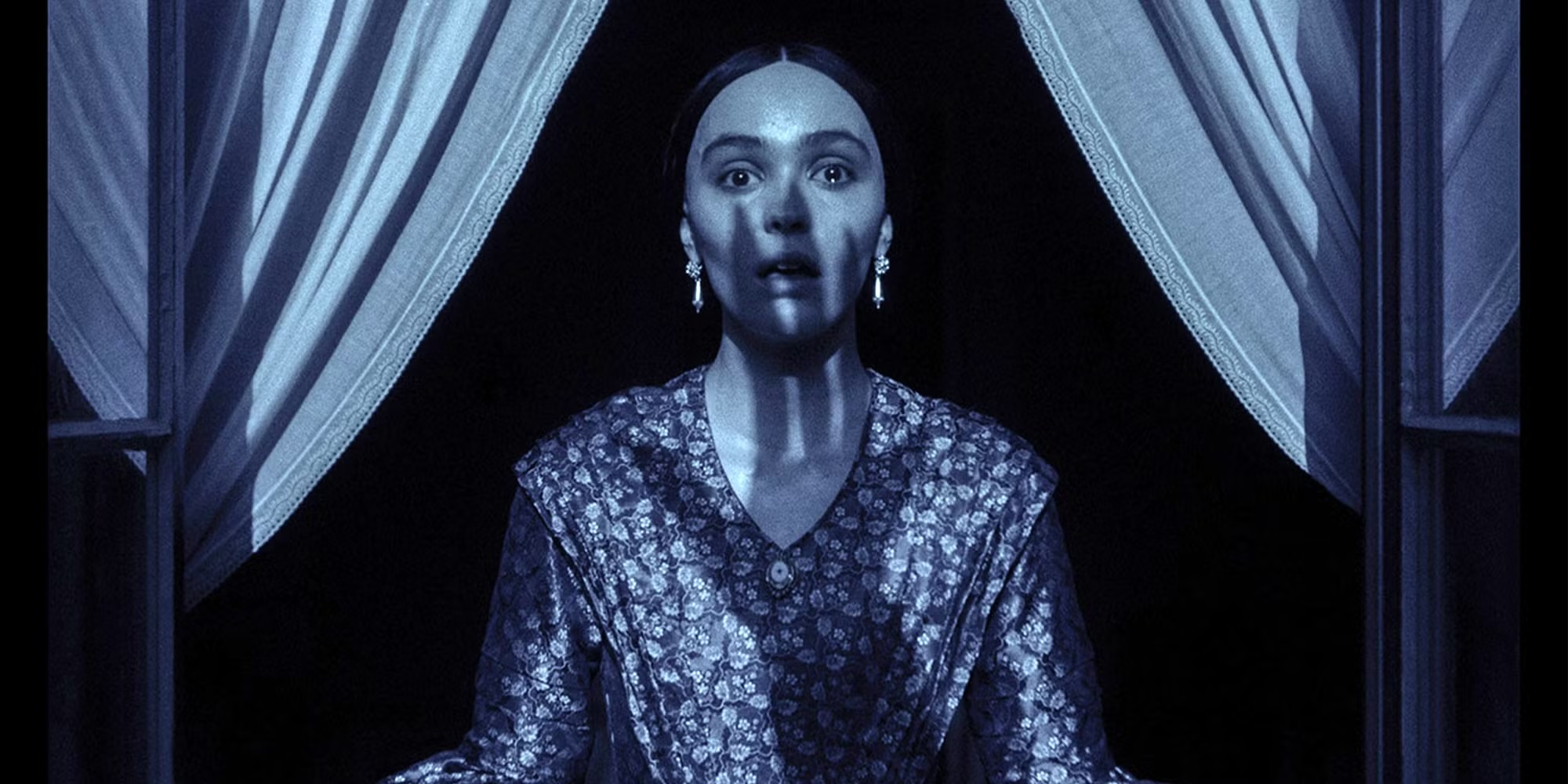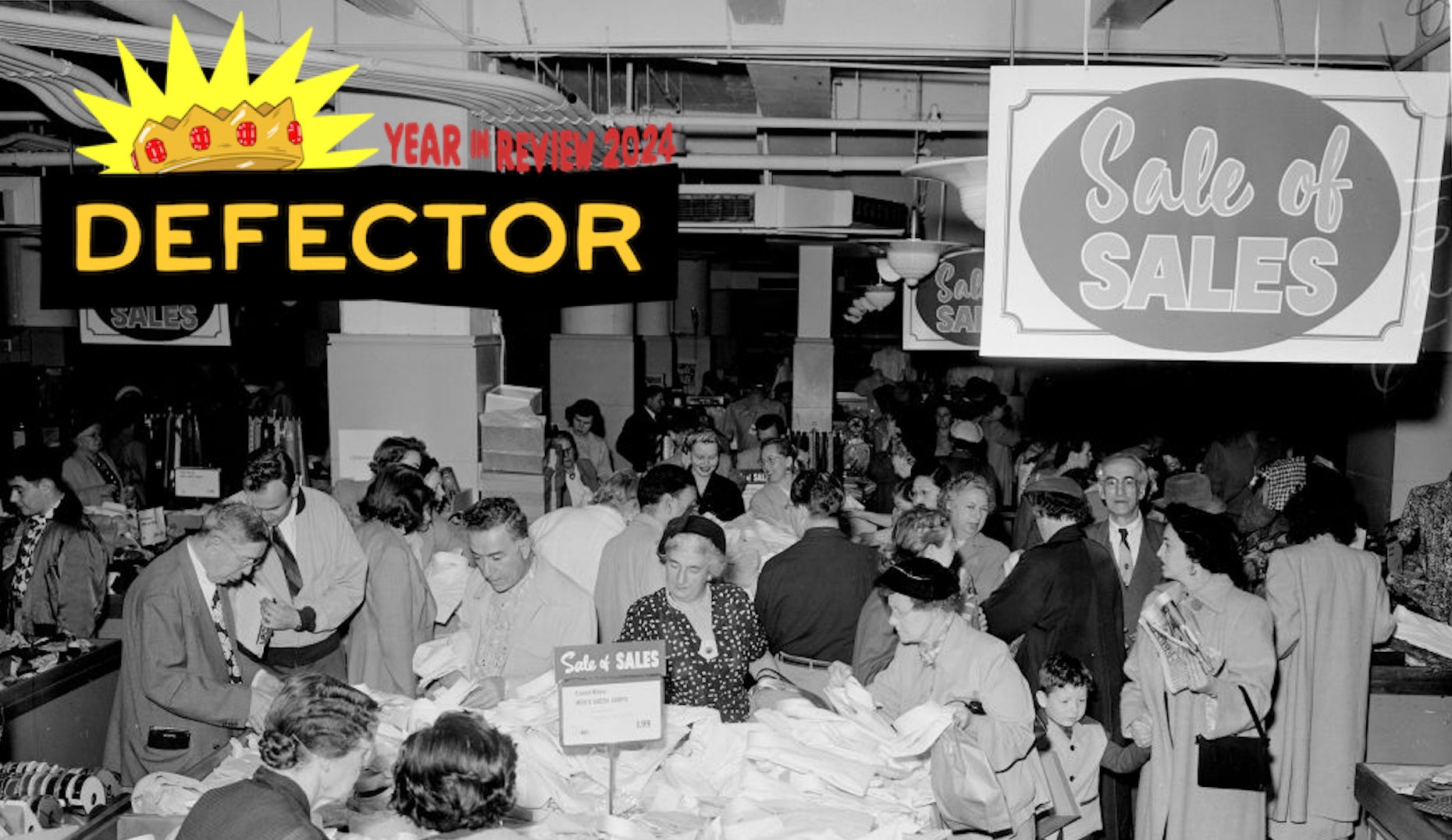Kevin Durant wants to be traded out of Brooklyn. We know this in the way of knowing basically any NBA stuff other than whatever is actually happening on TV in a given game: because scoopsters have reported as much, without on-the-record confirmation from any living soul who has agreed to be quoted by name. Anyway it is gospel. He wants out of Brooklyn, and has requested a trade. The mystery is how in the hell the Nets will make it happen.
This is maybe the weirdest and most fascinating trade challenge of my lifetime. It is like 2019's Anthony Davis drama, with the difficulty turned up to Nightmare. The possibility it raises is that a player can be so good that he is untradeable even when he requests a trade.
Like Davis in '19 (and not like Davis now), Durant is a mega-star, infinitely desirable to any team looking for an instant boost to its basketball prospects and/or its visibility on national television. You might imagine this making him very easy to trade: Literally any team would want to have him. But where Davis was not yet 26 years old in January of 2019 when he requested a trade from the New Orleans Pelicans, and thus theoretically would still be in his athletic prime whenever his new team finished rebuilding a squad obliterated by the cost of trading for him, Durant will turn 34 in September. Between his age and the devastating Achilles tendon injury he suffered in the 2019 Finals, he is already playing somewhat in defiance of both time and probability. For now he is, indisputably, one of the very best players in the sport, but in every plausible scenario he will decline fairly soon and forever. For any trade to pay off in basketball success for the team acquiring him, it will have to pay off pretty quickly—thereby limiting the short-term damage any actual good team can do to its own roster for the sake of making the trade work.
But how many teams can offer anything close to fair value for Kevin Durant without sending off all of the players who might plausibly help him contend for championships in the next couple of seasons? By my count, if this offer won't do it...
“Deandre Ayton, Mikal Bridges, Cam Johnson and five picks still isn't enough to me for KD,” 😳
— NBACentral (@TheNBACentral) July 6, 2022
- Anonymous GM on Kevin Durant trade talks
(Via @JakeLFischer ) pic.twitter.com/M8YQah1dFY
...then the answer is: None.
That is just one of the complicating factors! Back in 2019, when Davis asked the Pelicans to trade him, he only had one season and change left on his contract. This gave him effective veto power over any trade, as he could simply say he wouldn't consider signing an extension with a given team, instantly torpedoing his trade value to that team. But it also put a ton of pressure on the Pelicans to get a deal done as quickly as possible: His trade value would only go down as free agency approached and suitors factored in the possibility that he'd be an ever-shorter rental before commanding a huge new contract, and if his existing contract expired before the Pelicans made a trade they'd lose the chance to trade him for anything at all. This was messy and probably made the effort stressful for New Orleans's management and ownership ghouls, but in the end it had the global effect of simplifying things: What it basically came down to was, the Pelicans could make a deal with the Los Angeles Lakers, or they could eat shit, and so they made a deal with the Los Angeles Lakers.
Durant, by contrast, has a whopping four years left on his contract. One of the things this means is that he has no veto power, effective or otherwise; he might have a list of preferred destinations, but what is he gonna do, tell all the teams not on it that he won't sign a contract extension with them three years from now, when he is 37? Big frickin' whoop, buddy! It also means that, though the Nets' honchos may want to facilitate Durant's request in good faith or whatever, they are not under as much pressure to get this done quickly, if they particularly feel like shithousing their way to the best possible deal. And if they want to be really cynical about it, they can trade Durant just about anywhere; his only material recourse, so far as I can tell, would be to refuse to play if sent to this or that undesirable situation. You can imagine a 34-year-old who already missed a year with a kerploded ankle maybe not hurrying to sit out some of the final years of his playing career to try to force yet another trade.
Does that simplify things? Maybe it does, at least in the sense that Brooklyn's honchos likely feel a bit more breathing room than New Orleans's did. But Davis's contract situation had the perverse effect of setting him and the Pelicans at sharp, vicious odds while also, ultimately, neatly aligning their interests: After some pointless, theatrical brinksmanship crap by the doofus New Orleans front office, the Pelicans ultimately had no choice but to agree with Davis that the right move was to trade him, to the Lakers, while they still could. The Nets have time and space to demand the moon ... and just about nobody can afford to offer it.
Then there is the money part. Those four years of remaining contract are due to pay Durant roughly 198 million frickin' smackers; he is due $44 million in salary in the coming season. Balancing the money part of any trade for him will be very difficult for any team unwilling to part with its very best and best-paid players, which reaches back a couple of paragraphs and complicates that whole thing about his value being highest to teams with realistic ambitions of contending for championships with him in the next couple of seasons. The good teams can't trade for Durant without getting crappy; the crappy teams can't trade for him without sending off the stuff—draft picks, talented youngsters—they'd use to quickly un-crap the cast around him.
All of this underlines the preexisting question of whether Durant realistically could hope to find any better set-up than the one he's asking to leave. The (anonymously sourced, always) reports frame him as sort of broadly fed-up with the Nets' underperformance and/or feeling that the organization mistreated Kyrie Irving by not offering him a long-term contract after this past season. (This is maybe beside the point, but Irving killed the Nets just about singlehandedly in the 2021–22 season with his pointless and monstrously selfish COVID vaccine holdout; if Durant is mad that the Nets didn't play all that well and that the organization balked at making a long-term commitment to a dude who wasted an entire season in service to the principle that he, personally, should be exempt from any expectation of social responsibility or solidarity with the people around him, well, that is pretty funny.) Which, hey, anybody is free to get sick of their workplace for any reason at any time. But the fact remains that the Nets already have Kevin Durant, at least one other nominal star teammate, possibly two if Ben Simmons ever unbooms himself enough to play at or near his former level, and a supporting cast not shredded by the effort to trade for Kevin Durant. That is to say, the Nets, alone among participants in the 2021 playoffs, can put Durant on next season's roster without blowing up any part of last season's roster. It's very possible, likely even, that he already is in the best situation made possible by the NBA's salary rules.
Does any of this mean a trade won't happen? I truly have no idea; it might have happened while I was typing this. The Nets aren't without meaningful incentives to go ahead and make a deal—if nothing else, it's a drag to have, as the face of your franchise, a very famous and influential superstar who's visibly resentful of being there. It's sort of wild and crazy-making to imagine that this could be the rare scenario where a blockbuster trade both registers as a huge accomplishment by its negotiators and immediately and undeniably delivers at least two of its principals into worse circumstances: Durant, by landing him on a crappier team with worse prospects over what are likely the final years of his greatness, and the Nets, by returning nothing close to the value of having Kevin Durant on your basketball team. That would be pretty funny. Now I kind of hope it happens.
